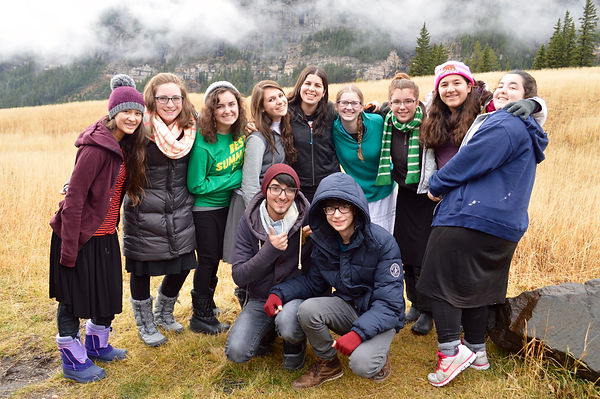Experiential Education Rationale
Support for experiential education, whether in natural/outdoor (e/g/ State or National Parks, farms) (Munoz, 2009) or indoor settings (e.g. museums, hospitals, businesses) (Signal Hill, 2004) continues to grow as researchers conduct wide ranging, as well as more in-depth studies examining a variety of programs. They are researching borth the efficacy and impact of experiential education.
Drawing upon reserach in this area, DAT High School has developed a pedagogical model that enhances general and Judaic courses of study through hands-on, experiential learning. Students connect their learning in the classroom to real-world settings, enhancing their overall cognitive development and understanding of the material. Whether meeting with the head of kashrut at the CRC, shadowing physical therapists and assiting with brain-injury patients and Spalding Rehabilitation Center, or working with doctoral students in the microbiology lab at the University of Denver, DAT High School students extend their learning beyond the classroom. This model gives them the opportunnity to apply what they are learning in theory in the classroom to outside, real-world settings. Beyond theory, students learn about how passion, commitment, and drive motivate adults in their work, helping them identify and follow their own passions.
These experiences are part of our school philosophy that the end of education is to assist and shape a students' experience in the outside world. The extended classroom experiences help students hone their observational, critical writing and scientific examination skills. Contact with the principles learned across all content areas in real-life settings helps them integrate and assimilate their knowledge.

